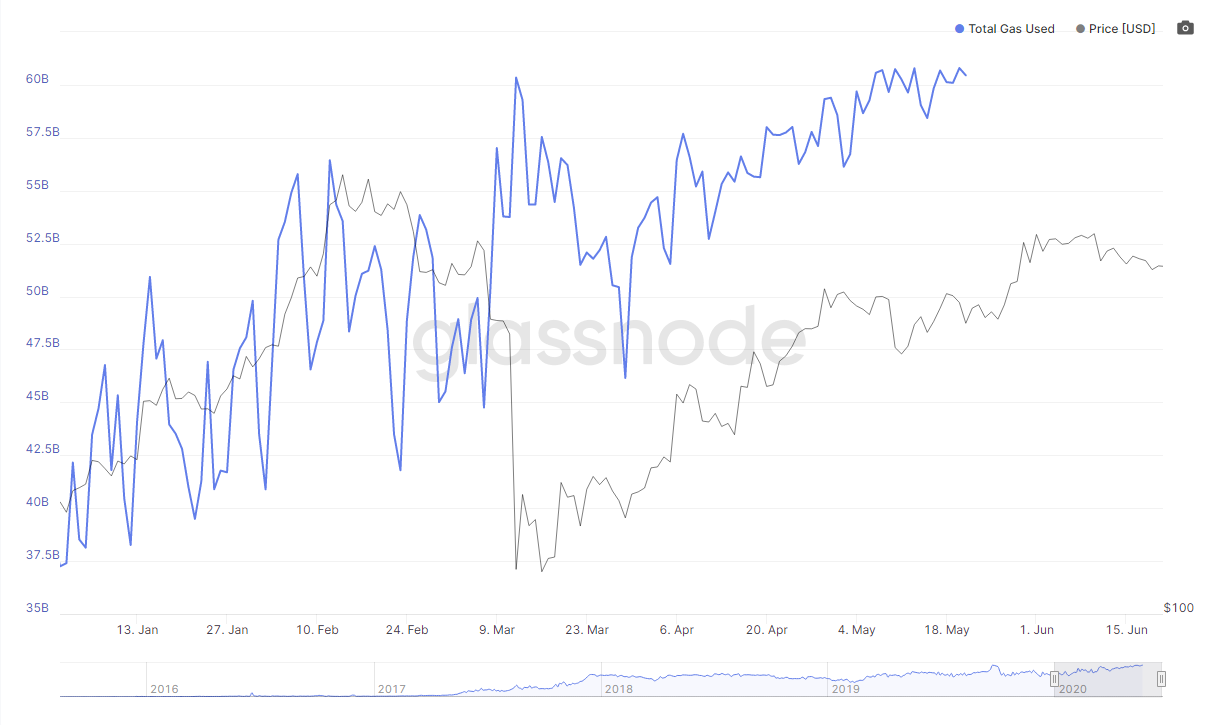
Ethereum team lead, Péter Szilágyi believes the latest increase in miner fees is a threat to the long-term health of the network.
Miner fees for the second-largest blockchain by market cap are on the rise in the run-up to Ethereum 2.0. The long-awaited upgrade will see a fundamental shift from Proof-of-Work to the Proof-of-Stake consensus mechanism.
Miners Capitalize on Increased Network Traffic
Ethereum network miners are currently voting to raise the gas limit from 10,000,000 to 12,500,000 Gwei as a response to an increase in network use.
Etherscan data show that the gas limit is hovering around 12,000,000. Ethereum team lead, Péter Szilágyi, is not impressed by this 25% increase, arguing that miners do not care about the network’s future health.
Szilágyi explained in a tweet that miners will only look after their own interests at the expense of the network. Ethereum co-founder, Vitalik Buterin, chimed in on the conversation agreeing with Szilágyi’s comments.
(btw @sparkpool_eth *did* reach out to me ~6 weeks ago asking if I supported the gas limit increase. I told them I oppposed because you oppose. That said, the last 6 weeks of high txfees have put genuine pressure on people so I don't blame them for this decision)
— vitalik.eth (@VitalikButerin) June 19, 2020
Buterin was responding to Chinese-based mining pool Sparkpool about his position on the development.
According to Bitfly, an Austrian-based blockchain firm, increasing the gas limits by 25% could also theoretically allow the Ethereum network to increase its transactions per second from 35 to 44. In September 2019, miners increased the gas limit from 8 to 10 million.
Mixed Response From the Ethereum Community
The Ethereum Twitter community appears divided on the issue. There are those in favor of raising the gas limit, while others are naturally inclined towards maintaining the status quo. Or even lowering the fees.
The general argument in favor of the raise is the upcoming Ethereum upgrade. The opposing camp, on the other hand, is mainly concerned about long-term health. The update, expected to go live in July, will address the scalability issues facing the blockchain.
The drama is somewhat understandable since miners will become obsolete once the upgrade is complete. Validators will replace miners as ETH staking takes over.
According to one Twitter user, no miners on any chain care about their ecosystem. In terms of game theory:
“everyone looks out for themselves” and that’s the way it is and will always be.
Kain Warwick, the founder of Synthetix, a protocol for trading synthetic assets on Ethereum, argued that DoS is already happening. Therefore, an increase in the block limit is only a temporary solution that will buy time.
Rising Gas Fees
The Ethereum gas fees have increased more than 75 percent year-to-date (YTD), from $130.66 to $229.14. As of June 20, Glassnode data shows the rising trend:

The total gas used, an important indicator of Ethereum’s economic activity, reached a new all-time high in late May 2020.
The gas price for each transaction is not fixed but rather depends on the complexity of each transaction. On the other hand, the price of gas is set by miners who determine the amount they are willing to accept to execute transactions.
A report published by DelphiDigital at the time showed that the increase in usage is a result of:
“USDT transactions and DeFi applications with some scams/Ponzi schemes sprinkled in.”
On June 6 and 7, the network fees paid on the network amounted to $498,000 and 540,000, respectively, totaling over $1 million. This was almost twice the fees on the Bitcoin network that amounted to $566,000 in the same period, Glassnode data shows.
The post Miners Don’t Care About Long-Term Health: Ethereum Lead appeared first on BeInCrypto.
